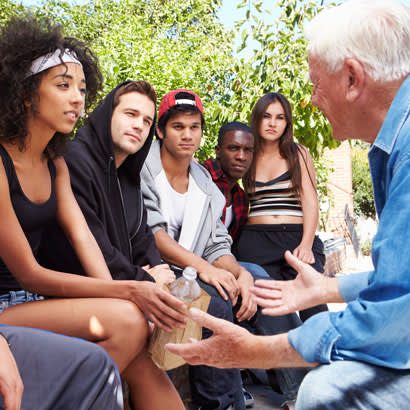
Mental health programs have become an increasingly popular and essential type of programming for people of all ages.
Younger generations have played an especially prominent role in encouraging conversations about mental health, and for good reason. Many young people today struggle with mental health issues, with 70 percent of Generation-Z (individuals born between 1997 and 2012) reporting that anxiety and depression were major problems among their peers.
The challenges of our new normal have further isolated members of Gen-Z, making it more difficult for young people to come together and share their experiences. However, as a park and recreation professional, you are well-positioned to help! With your staff and resources, you can host meaningful programs that connect Gen-Z participants to one another while building a compassionate community.
In this guide, we’ll explain how parks and recreation centers like yours can plan an effective mental health program for Gen-Z. Here are the top tips we’ll explore:
- Include mental health professionals and young people on your team.
- Pick a theme.
- Select an event type that aligns with your theme.
As the conversation surrounding mental health continues to become more normal, your agency can serve as a safe outlet for your community’s young people. Let’s take a closer look at these tips so you can host an empowering event of your own!
Include professionals and young people on your team
When planning your mental health program, the first step is to assemble a great team. But your team shouldn’t include just anyone — you need to have mental health professionals and young people to help execute a successful event.
Mental health professionals are crucial for any type of event about mental health. They can appropriately guide the event and ensure that it addresses the right issues in a sensitive and compassionate way.
Furthermore, if you’re hosting an event for members of Gen-Z, it needs to be created by members of Gen-Z. Many young people struggle to feel represented in “adult” spaces, so it’s essential that their voice is amplified in events meant for them.
On the note of representation, it’s also important that if your event is focused on a particular identity, such as people of color or members of the LGBTQ+ community, you include people representing those identities on the planning committee. Even if your event is not meant for a specific group, you should still make an effort to include marginalized individuals as often as possible, regardless of the event’s theme!
Pick a theme
Mental health is a broad category, and you can’t cover every topic with one program. But don’t worry! By picking one theme to focus on, you can ensure quality over quantity. This way, you can provide helpful guidance that addresses a specific problem and leaves participants feeling like they have actionable strategies to handle the challenge.
Here are some theme ideas that can hone your program while still being applicable to many young people:
- Coping with anxiety and depression.
- Addressing social anxiety.
- Navigating stressful world events.
- Maintaining mental health in school and the workplace.
- Providing support for participants who have experienced racism, homophobia, or sexism.
When selecting your theme, be sure to gear the topic towards issues that are applicable to Gen-Z and your community. For example, it might be more relevant to focus on social media addiction, social anxiety, and body image issues rather than navigating marital relationships.
Selecting a theme can be tricky, so that’s why it’s essential to include members of Gen-Z on your planning committee. They can help you decide which issues are most relevant to their peers, hopefully helping to increase participation at the event.
Select an event type that aligns with your theme
Once you’ve selected your theme, you should pick an event type to structure your theme around. Whether you’re offering an in-person, online, or hybrid program, select the event type that you think will be most popular among your target audience and that best fits your theme. Some examples of event types include:
- Yoga classes.
- Stress reduction workshops.
- Outdoor events or nature walks.
- Art classes.
- Gratitude workshops.
- Music lessons.
- Anxiety management workshops.
Depending on the focus of your event, you can combine some of these event types. For example, if you’re focusing on coping mechanisms for anxiety and stress, you could host an outdoor art class to encourage participants to enjoy the outdoors while expressing their feelings through art.
After your event, send a survey to your participants to see if they enjoyed the theme and event structure. Incorporate their feedback into your next mental health event so that your offerings continue to meet your community where they are!
Your parks and recreation centers have the unique opportunity to build a meaningful and empowering space for members of Gen-Z. By recruiting the right team members, focusing on a topic relevant to your audience, and creating a fun and educational environment, you can launch a mental health conversation with your community. Now more than ever, young people need a safe space to come together and share their experiences — and the spaces you manage are the perfect places to do that.
Joseph Oriente is the president and founder of Capturepoint, creator of CommunityPass. Joe established Capturepoint in 1999 and launched CommunityPass in 2003, which was initially created to provide online registration and payment for a local town sports council that was overwhelmed with an increasing number of paper registrations. Since then Joe has been responsible for expanding CommunityPass nationally to become one of America’s most well respected and complete online management solutions with registration, membership and facilities software serving the recreation and school markets.

